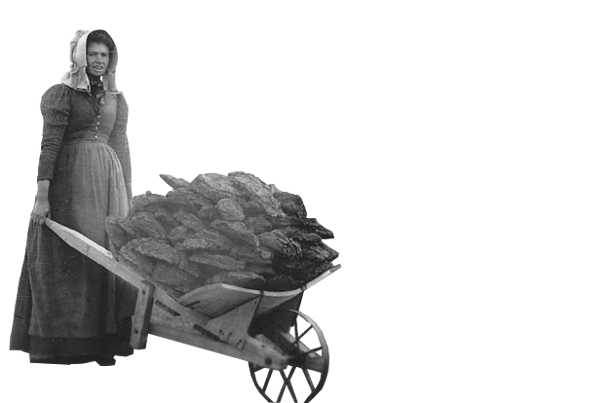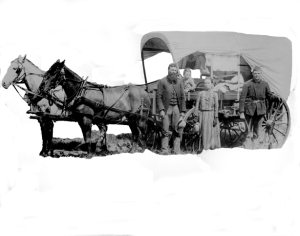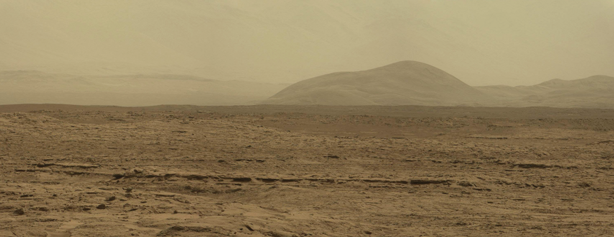By Nadine Moedt (The Cascade) – Email
Print Edition: February 5, 2014
Alex Marion is one of 200,000 candidates who might just be in for the trip of a lifetime: a one-way ticket to the red planet. Marion, along with the other 1,058 applicants who made the first cut, hopes to be part of the Mars colonization process through a Netherlands-based non-profit known as Mars One. Of the 200,000 applicants around the world, a total of 75 Canadians, just two of these from B.C., were deemed suitable. Of the applicants, six groups of four — 24 individuals — will be selected to begin the gruelling eight-year training process which would eventually lead to their permanent departure from earth starting in 2024.
The Mars One website states that the technology to support human life on Mars currently exists. All that is needed, then, is “public interest.” The organization will broadcast the application and training process as well as the candidates’ departure and life on Mars for advertising revenue.
It’s not your typical post-graduation plan. But for Alex Marion, life on Mars would be a dream come true.
Can I ask you a little about your background? You graduated with honours psychology from UFV. What are you up to these days?
Right now I’m working as a general labourer in a warehouse. But I’ve applied to graduate school and am waiting on that. I applied to SFU’s quantitative theoretical history department in psychology.
And where would that take you?
Well, that would end up being a PhD in psychology focusing on theory and history, sort of looking at the philosophy of science side of psychology, so why is it that we do psychology the way we do.
Can you tell us about the Mars One application process?
Anybody, all over the world, had the chance to apply, as long as they were 18 or older. There was no upper age limit, there was no other requirement; it didn’t matter what country you were from, age, gender … then you had to make a video where you had to answer three questions: “What’s your sense of humour?” was one of them, also, “Why you want to go to Mars?” and “Why you think you are a good candidate for the mission, for a colonization mission, a one-way trip?”
There was a part where you had to upload a resume or CV with all your educational and vocational experience along with any credentials that you’ve got and awards you’ve won. And then there were some essay questions, things like “Tell us the most stressful experience of your life and how you dealt with it,” [or] “An example of a time where you came in contact with a different culture and what happened” … It was their way of gauging if you had all the qualities they were looking for. So they were looking for things like adaptability, resilience, reliability; they wanted to know you had a sense of humour; they were looking for curiosity.
Why do you think yours stood out?
That’s really hard to tell! I’m simply under the assumption that me, along with the other 1058 people that got picked, demonstrated fully the qualities they were looking for … I think what allowed me to do that has a lot to do with my psychology background. It has given me a lot of insight into who I am as a person as well as the tools to constantly be looking at myself.
Why do you want to go to Mars?
My answer to that question is kind of long and complicated. You know, a lot of people were like, “oh, it’s always been my dream to go into space, I’ve always wanted to be an astronaut,” or “I grew up watching Star Trek,” or what have you. Those are very cute answers. But we are going to colonize another planet. I see this as a huge opportunity for everyone in the world to come together to do this mission for humanity. This isn’t about going into space … This isn’t something that should be for a country; this isn’t something that should be for one organization, this is humanity’s mission.
Did you always have this dream to live on another planet? As a child did you have astronaut role models? Did you watch Star Trek?
My dad is very much the space nerd, just like me. You know, he has a lot to do with why I have such a love of space and astronomy … I grew up as the international space station was being built and as I came into my adulthood I thought, well people are going into space, that’s all well and good but I didn’t really see myself [having] a space there, space in space. What I always looked forward to was sort of a futuristic mankind type of thing, working together, a very Star Trek type of universe. I never expected that in my life time, the aspirations I had were sort of 200 years away maybe. But here we are.
What do your family and friends think of this dream? Are they generally supportive?
It was my dad actually who told me about the mission in the first place. I don’t think he is regretting it, I mean everyone is being really supportive, very proud. I don’t think they are too surprised that I applied because I’ve always been so ambitious. I’m always seeing how far I can go, where my limits are.
They don’t want me to leave. I think they want me to get to the very end and then decide to stay on Earth and use my fame to do something good on Earth.
If you do go, what are you giving up for the sake of the mission?
When I first had applied I had thought, I’m applying to leave the planet, until I find out if I’m going or not I can’t do all these things, then I decided, well … chances are I’m not going to go. It was out of 200,000 people. I’m just one psychology student working at a warehouse in Surrey, you know? Who am I, really?
In terms of the future … you are essentially changing your entire life. You have to move to the Netherlands to become employees of Mars One, and a lot of the training involves living in simulation settlements here on Earth to test whether or not you can live with three other people in a tiny confined space and all get along.
Do you actually have the mental, emotional, and physical capacities to do this? Can you do what you have said you can do in your application. Obviously you wouldn’t be able to see your family very much, if at all. You wouldn’t have a personal life; your personal life would be the three other people that you’re with. Of course in going to Mars you don’t ever come back. It’s a colonization mission; you’re giving up everything for that. All you’ve got is what you take with you to Mars and then what’s on Mars.
Does that scare you?
Not really. I’ve never been the type of person that needs things. I’m a bit of a minimalist. I have a very select group of friends, I’m an introvert. I’m not worried about the three other people. We are going to more or less pick who we go up with, who we get along with. I am an easy-going person, I do get along well with people easily, so hopefully the other people will be like that as well.
If you do make the final cut, how do imagine your life in 30 years?
Well, in 30 years, if I’m within the first four, I would have been living on Mars for about 18 or 19 years. At that point I would anticipate the settlement to be quite expansive. By then they’ll have sent a few more groups of four … The living quarters would have been expanded, the hydroponics bay would be well established, you would be producing your own atmosphere at that point. There wouldn’t be a whole lot to do in terms of setting up the settlement. So I would see a lot in terms of research, looking at what’s on Mars, looking for evidence of past life and possible current life. There’s a lot we can do as people that the rovers can’t, so our visual field is much greater … We’ll have the ability to construct and design things on Mars; the plan is to have a machine that can make plastics and a 3-D printer of sorts. I anticipate by that point a lot of tools will have been sent. That sets it up for things like asteroid mining; there’s a whole economy that could be set up by then.
What would make this mission a success in your eyes?
For me there’s two types of success. Obviously first and foremost is getting people there and having them survive, creating a sustainable community in which they don’t need [anything] to be sent from Earth … Hopefully, the first success would be sustainability. Everything that we need we can get from Mars.
But my personal hope is really to inspire people. We have to be sustainable, we can’t be producing waste on Mars, we can’t contaminate it. We don’t necessarily belong there naturally so we have to find our place there … So hopefully that will inspire people here on Earth, to see a colony of 15 to 20 people that produce no waste, that recycle 95 per cent of all water that they use, and they have comfortable, productive, meaningful lives.
“I see this as a huge opportunity for everyone in the world to come together to do this mission for humanity.”
Do you consider yourself an environmentalist?
Absolutely I am an environmentalist. I live minimally, I try to reduce my waste, I recycle and reuse whenever I can. I believe in protecting the environment … The big question I keep getting is why are we sending people to another planet when we’re screwing this one up so badly? And I think the reason we’re screwing this one up so badly is so many people don’t care, or at least they’re not willing to make changes … They think, what difference can they really make [individually]? I think people really need something like this to really motivate them.
The Mars One mission is going to be filmed closely. Are you comfortable sacrificing your privacy for the sake of the mission?
People have called it a reality show. Reality shows focus on people’s everyday drama but it’s not like that. It’s more of a live documentary. It’s not reality TV, it’s just reality. Nobody is going to be playing things up for the camera. The focus is going to be on the mission … We still have our own private lives that people won’t see, and it will be up to us if we want to show that part of ourselves. There’s no paparazzi on Mars. There’s no media hunt. They can’t invade your private life. I would easily have more privacy than I would as a celebrity on Earth. You’ve got so much more control over what people get to see.
If you could bring one personal item to Mars, what would it be?
The best answer that I can come up with is an Amazon Kindle. Something that I can upload and have tons and tons of books … There’s going to be a lot to do on Mars, but I’m going to want some down time, and I want to make sure that at least for the trip to Mars I’ve got a lot to read … I’m going to want entertainment.
What would be your spaceship playlist — your anthem for going into space?
I have been thinking of what kind of songs would be really cool. I have a list, it’s not very long, but here’s what I have. “Rise,” by Skillet. “Wherever I May Roam,” by Metallica. “It’s My Life” by Bon Jovi, “Through Glass,” “Do Me a Favour” and “Influence of a Drowsy God” by Stone Sour. And then “Indestructible,” “Ten Thousand Fists,” and “Darkness” by Disturbed. I’m mostly into new metal, that’s kind of my digs.
What is on your Earth bucket list, or your list of things that you would miss most about being on Earth?
Well, the things that I would miss most would definitely be my family and friends. I think the personal connections we make with people are one of the most important things in life … We’ll still get to send emails and video messages back to Earth. One of the communication satellites will be dedicated to transmitting internet feeds. There will be a delay of [between] three and 27 minutes depending on the position of Earth and Mars…
In terms of a bucket list, though, I’m really hoping I get to travel more. As much as I’m looking to leave Earth, it really is a beautiful place and a great place to live. I especially want to see more of Europe … I definitely want to go diving off Australia, see the Great Barrier Reef, hopefully go swimming with the whale sharks. That would be totally awesome. I want to backpack across Asia and safari in Africa. So there’s definitely a lot to see before I would pack up and leave. Of course I would miss Earth … There’s a lot of beauty and good things on Earth, and I think if you can’t see the good here, you’re not going to see the good on Mars.
This interview has been edited for length and clarity.
Editor’s note: since this interview, Marion has withdrawn his candidacy, realizing his colour vision deficiency would later bar him from the program.



